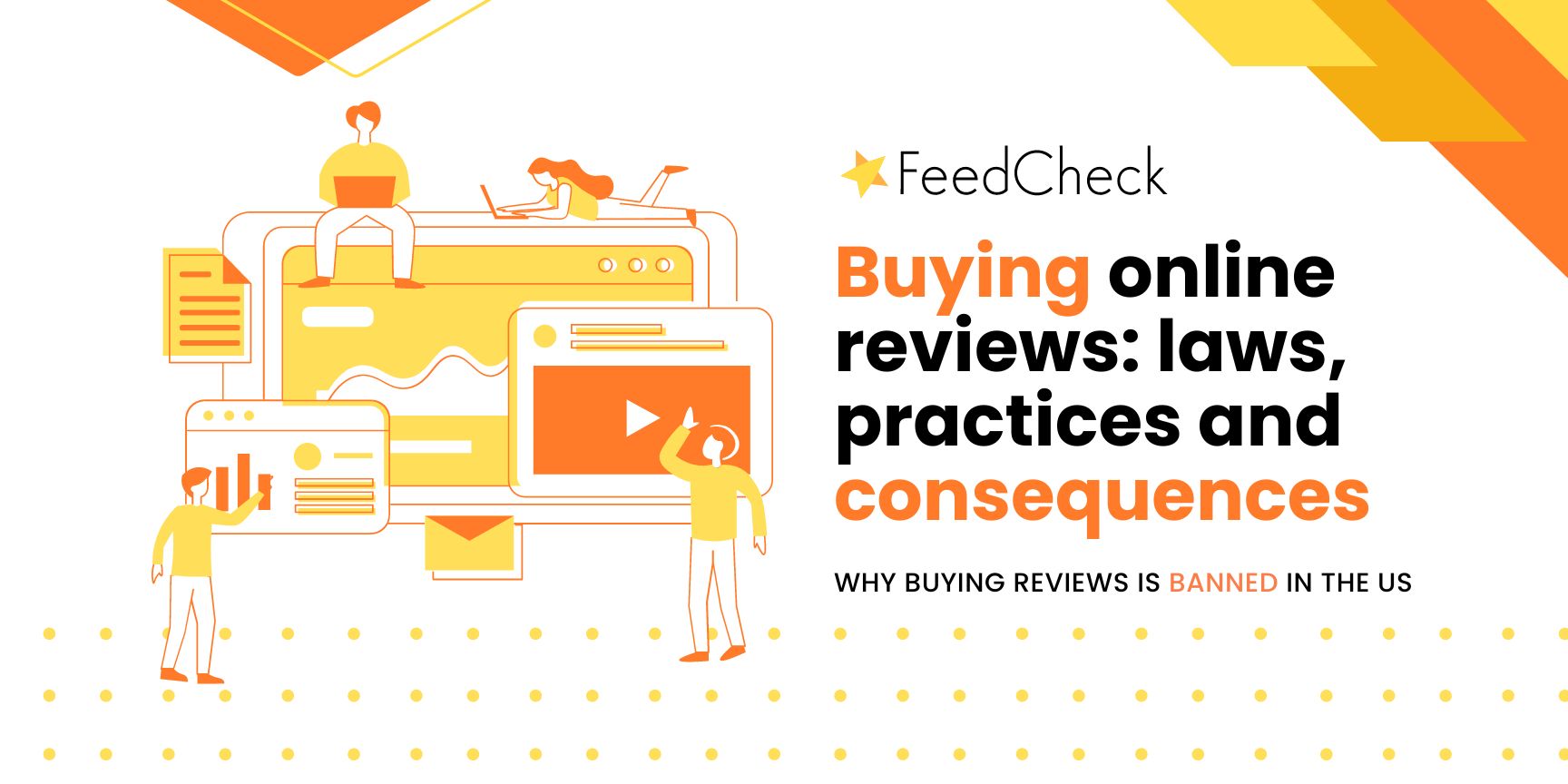Introduction
Fake online reviews are becoming a growing concern across industries as more customers rely on social proof to guide their purchasing decisions.
While many business owners understand the power of online reviews, not all feedback is created ethically. With a new trend of buying and selling online customer reviews on the rise, the Federal Trade Commission (FTC) finalized strict review management compliance rules.
In the following article, you’ll learn about the FTC’s recent ban on fake online reviews and why such fabricated feedback can actually harm your brand reputation.
FTC fake review rule: What’s banned and why it matters
It’s a known fact that buying and selling online customer reviews has always been frowned upon. However, it’s important to discuss the legal limitations regarding this issue that were enforced in the United States this summer.
On August 14, 2024 the U.S. Federal Trade Commission on Wednesday finalized a ban on companies that intentionally display bought online reviews on their digital platforms. It’s important to mention that this ban includes fake customers, company insiders and artificial intelligence (AI).
The biggest customer feedback platforms in the US (Google, Amazon and Yelp) agree with the FTC ban.
Going against the rules can deeply impact one’s business, as the penalty can reach up to $51,744 per violation.
The main tactics that the new FTC ruling prohibits are:
- Writing, selling and buying fake customers reviews and testimonials
- Failing to make disclosures about insider reviews and testimonials
- Illegally suppressing negative customer feedback
- Buying positive or negative reviews
The last point benefits from additional mentions, as it involves a necessary distinction between paid and incentivized reviews.
Paid vs. incentivized online customer reviews
While they might sound like the same thing, paid and incentivized reviews are different in terms of compensation.
It’s imperative to understand the differences between the two, as an important segment of this article focuses on legal aspects regarding the limitations of generated customer reviews.
Paid customer reviews imply that the reviewers receive direct compensation (usually money) for writing a review. Most commonly, there’s two options: positive online reviews the company itself is buying for better feedback. And, contrastingly, negative reviews for competitors, acting as a threat by the business paying for the fake reviews.
Incentivized customer reviews involve non-monetary indirect compensation, such as discounts or free products in exchange for providing online feedback. While the reviewer is not required to write a positive review, there’s definitely a subtle bias towards it with incentive.
The FTC fake review rule bans paid or bought online reviews, including those from insiders, bots, or manipulated sources. When it comes to incentivized feedback, there’s only regulations, no bans. That means that companies are still allowed to offer discounts and free products in exchange for customer feedback, but they’re not allowed to suggest the positive or negative nature of the rating and of the content attached to it.
How fake online reviews can hurt brand visibility and trust
Buying and displaying fake online reviews can seriously damage your online brand reputation and violate the FTC’s review compliance standards, as they represent fake social proof.
Social proof is a phenomenon where people base their actions on the opinions of other consumers in order to establish the quality of a product or service they consider purchasing.
At first, users may be tempted to view your business in a positive light when they see all the 5-star ratings and reviews. However, there’s always a point when the content of the reviews can become repetitive or compliment the business in a way that seems too good to be true.
That’s when paid online reviews backfire and become red flags instead of effective marketing tools.
If your audience starts to doubt the authenticity of your customer feedback, they will spread the information through word of mouth, negative online reviews or social media posts that will quickly damage your brand reputation.
You should also keep in mind that online review platforms like Google, Amazon and Yelp are always on the lookout for fake customer reviews. If they discover that you display fake customer feedback, they may remove your online reviews, reduce your visibility or even ban your business profile from their platform.
86% of consumers believe that authenticity is a key factor when deciding which brands they like and support. Therefore, it’s imperative to make sure that your online presence is based on information that matches reality. Your customers should know exactly what to expect when they have their first contact with your business.
Conclusion
Buying customer reviews can deeply hurt your online brand reputation. It makes your brand less authentic, and damages credibility and loyalty in existing and potential customers.
To ensure your reviews meet FTC compliance standards and reflect real customer experiences, use a review management tool like FeedCheck. We help you aggregate and monitor your customer feedback from all over the internet, being able to analyze and respond to guest feedback in one place.
Contact FeedCheck today and learn how your online reputation can become a detrimental tool for your marketing strategy.
